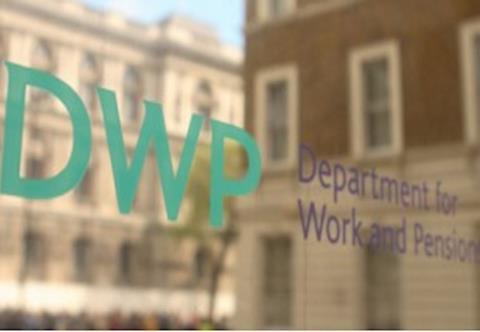
The Department for Work and Pensions (DWP) has published a white paper on defined benefit (DB) pension schemes setting out the government’s intentions to give The Pensions Regulator (TPR) stronger powers to take action against company directors who commit reckless action in relation to a pension scheme, strengthening scheme funding standards and considering how scheme consolidation can be strengthened.
In Protecting Defined Benefit Schemes, the DWP sets outs its plans to increase the protection of members benefits, primarily by giving TPR stronger powers. The report states that the government plans to legislate to: introduce a penalty regime to work alongside the existing contribution notice framework; consider whether further legislative changes are required to improve the effectiveness and efficiency of the regulator’s current anti-avoidance powers; and to make it a criminal offence to punish reckless behaviour in relation to a pension scheme.
It also plans to legislate to enable TPR to be a more proactive body, by bringing forward measures including the power to require attendance at interview, civil sanctions for non-compliance with section 72 notices (in addition to existing criminal sanctions) and inspection powers, harmonising powers the regulator already has for automatic-enrolment and master trust arrangements that would apply at the discretion of TPR to drive compliance with requests for information.
The white paper also sets out measures to strengthen TPR’s powers to enforce DB scheme funding standards through a revised code of practice. Alongside this, DB scheme trustees will be required to appoint a chair who must submit a chair’s statement to the regulator with the scheme’s triennial valuation.
Later this year, the government will also consult on proposals for a legislative framework within which new forms of consolidation vehicles could operate, as well as on a new accreditation regime to build confidence in and encourage existing forms of accreditation.
In addition, it will consider some minor change to guaranteed minimum pensions conversion legislation to support benefit simplification and help reduce complexities in existing benefits structures.
In a foreword to the white paper, the DWP stated: “The pensions’ landscape is evolving, as defined benefit schemes continue to close and be replaced by other forms of provision. This alters the relationship between the sponsoring employer and the scheme, bringing new challenges for trustees and employers. We are managing this change so that the defined benefit system continues to work in the best interests of those involved: for members and pensioners, for today’s workforce and for employers.”
Clive Fortes, partner at Hymans Robertson, said: “The Pensions Regulator should not have to wait for a crime to be committed before having the power to intervene, so [this] white paper’s recommendations are welcome. We are strongly supportive of the need to stamp out unscrupulous behaviour by scheme sponsors. The threat of criminal conviction should act as an effective deterrent against employers wilfully doing the wrong thing by members of their pension scheme.
“But we must remember that the vast majority of employers work hard to do the right thing by the members of their DB pension schemes, working collaboratively with the trustees to deliver members’ benefits in full. Since the start of the millennium, UK employers have collectively contributed over £500bn into their pension schemes although deficits remain stubbornly high.
“Inevitably there will be a few employers which put individuals’ DB pensions at risk. It is, however, essential to be able to distinguish between deliberate acts by an employer that put members’ benefits at risk and, for example, poor investment outcomes flowing from the trustees’ investment strategy or poor business decisions leading to the failure of the sponsoring employer.”
Kate Smith, head of pensions at Aegon, added: “The government has finally published its long-awaited defined benefit white paper, which includes measures to protect against a small minority of unscrupulous employers. It is sending out a loud and clear message that reckless behaviour from employers which puts DB schemes at risk will no longer be tolerated. Those employers found guilty of deliberately putting their DB scheme at risk can be heavily fined and risk a criminal record.
“It’s timely that the government is also looking to strengthen the Pension Regulator’s powers around corporate transactions which could negatively impact their DB Scheme.
“It’s also positive that the Pensions Regulator will be setting out a code on clearer funding standards for ongoing schemes. Taken together, these new powers will strengthen DB schemes and give greater protection to members’ pensions and, in turn, should reduce the numbers of DB schemes falling into the Pension Protection Fund. There’s more work to be done, but this is a giant step in the right direction.”
John Gordon, pensions counsel at law firm Ashurst, said: "While the government has been careful to deny that the proposed changes will hurt business, some of the suggestions in the white paper will concern [organisations]. Employers will certainly want more clarity in relation to the proposed criminal offence of 'wilful or grossly reckless behaviour' in relation to a pension scheme, and the regulator's ability to issue punitive fines against directors, especially since the new fines regime may apply retrospectively from today.
“Employers may also be concerned at the regulator's proposed new powers to call people in for interview, and to go through electronic devices in search of relevant information. Whether the changes set out in the white paper will address the problems some see as hampering the current pensions regulatory regime remains to be seen."
















